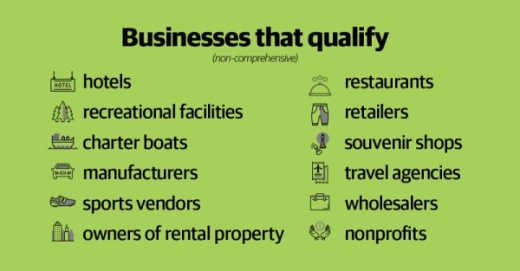 For small business owners seeking disaster loans during the coronavirus pandemic, local financial aid organizers have one clear message: apply immediately.
For small business owners seeking disaster loans during the coronavirus pandemic, local financial aid organizers have one clear message: apply immediately.The Small Business Administration is making its economic injury disaster loan available to small businesses in virtually every industry starting March 27, said Bob Siffermann, the chair of Fort Worth's SCORE chapter–an SBA affiliate.
Qualifying small businesses and nonprofits can borrow up to $2 million, Siffermann said in a phone call with local business owners. Any borrowed amounts greater than $25,000 may require some form of collateral in business property, but applicants won't necessarily be denied if they do not have collateral, he said.
"It is first-in-first-out," Siffermann said. "The sooner you can .... get the application in, the faster you can get ... a loan amount ... from the SBA."
The free-to-apply loan is backed by the U.S. Treasury, meaning applicants do not have to apply through a bank. Siffermann said they can simply send the necessary documents through SBA's website: www.disasterloan.sba.gov/ela
 Some of the basic criteria for applicants include an acceptable credit history, a demonstrated ability to eventually repay the loan and a requirement that the business is located in a disaster-declared county, according to the SBA.
Some of the basic criteria for applicants include an acceptable credit history, a demonstrated ability to eventually repay the loan and a requirement that the business is located in a disaster-declared county, according to the SBA."The SBA will not necessarily decline a loan for lack of collateral, but may require some additional information or some additional pledges from you to provide that loan," Siffermann said.
Linda Williams, an SBA economic development specialist, stressed the importance of compiling all the necessary documents in advance.
"The goal traditionally is about two weeks processing time on this," she said. "But we're at the very ... beginning, actually, of a very large disaster. So [our director] is estimating to allow about three or four weeks."
 The key documents to have completed and dated include: the SBA loan application (Form 5); tax information authorization (Form 4506-T); personal financial statements (Form 413); schedule of liabilities (Form 2202); and a complete copy of the most recent Federal Income Tax Return.
The key documents to have completed and dated include: the SBA loan application (Form 5); tax information authorization (Form 4506-T); personal financial statements (Form 413); schedule of liabilities (Form 2202); and a complete copy of the most recent Federal Income Tax Return.Meanwhile, on March 25, the U.S. Senate sent to the U.S. House of Representatives a $2 trillion stimulus package that aims to pump billions into small businesses. Williams said she was not aware if the economic injury disaster loan would be affected by the bill.
Some of the qualifying businesses include hotels, recreational facilities, charter boats, manufacturers, sports vendors, owners of rental property, restaurants, retailers, souvenir shops, travel agencies and wholesalers, among others.
Some of the ineligible businesses include agricultural enterprises, religious organizations, charitable organizations, casinos, race tracks and any other businesses that derive more than one third of their annual gross revenue from gambling activities, according to the SBA.





